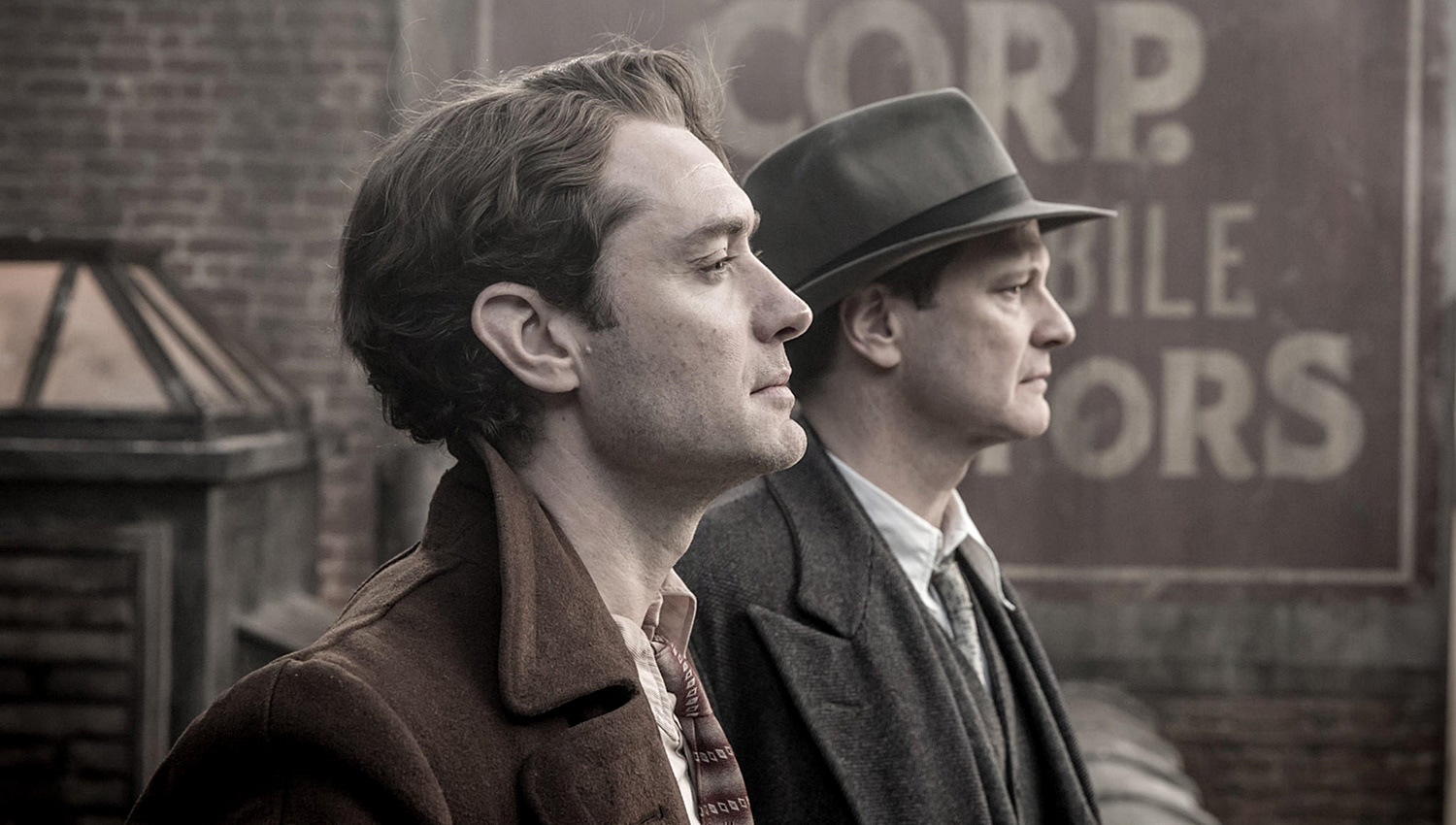
Genius
Dustin Chase
The moment you hear Jude Law’s Western North Carolina accent, thoughts of Cold Mountain (2003) begin to flood back. Then Nicole Kidman appears as his wife, and you realize in some twisted universe, Genius is more like a “what if” Inman had survived and he and Ada Monroe had left North Carolina, moved to New York and Inman became Thomas Wolfe. Genius isn’t a film about Thomas Wolfe, and maybe that’s its biggest problem. Colin Firth is the star here, playing a quiet and mannerly sophisticate as usual. He is one of the late 1920’s greatest names in publishing. It’s directed by Michael Grandage who is light handed dealing with period work and such iconic stars in his first feature. Genius does offer small highlights on historical figures, notable performances, but sadly not much else.
When famous New York editor Max Perkins (Firth) receives Thomas Wolfe’s gargantuan novel on his desk, he only agrees to give it a small look. Yet by the time he took the train home to his wife (Linney) and their daughters, he was immersed in the dramatic prose. Perkins, speaking for Charles Scribner’s Sons, was the only editor in the city to agree to publish Wolfe. The first time he meets Tom (Law) he understands why his work is so long, but he also sees in this ambitious and eccentric young man, the son he never had. The two become inseparable, their work bleeds into their person lives, and soon Wolfe’s older wife Aline Bernstein (Kidman) becomes hostile towards Perkins. Wolfe’s success only adds to the problem as he begins to believe he is as great as the reviews he receives.
Genius does offer small highlights on historical figures, notable performances, but sadly not much else.
Genius rarely touches the moments that might have provided the audience the greatest understanding of the character. It portrays itself a story about Max Perkins legacy, which was far more than his work with Wolfe, but it’s as if the filmmakers are more interested in Wolfe. Perkins (at least portrayed here) isn’t all together an exciting or cinematic character. He is certainly the focus of Charles Frazier’s book (yes that’s the same guy who wrote Cold Mountain, and lives in Asheville, NC) but I think for the screen having Perkins as the focus was the wrong direction. Brief scenes featuring Pearce as F. Scott Fitzgerald and West as Ernest Hemingway attempt to expand Perkins role as the greatest literary editor of his time, but the focus then goes right back to Wolfe and his struggles.
Kidman and especially Linney are after thoughts in this screenplay, given very little to do, in parts that could have been played by anyone. Law certainly reaches for this performance; he even gets under the viewer’s skin with his extremely hyper personality and motor mouth dialogue. Firth has played this type of role before, clearly cast for his familiarity with this subdued personality. The two scenes that stood out were the awkward conversation between Bernstein and Louise Perkins (which I assume is completely fabricated) and the perspective Perkins himself finally gains after understanding the pain he and Wolfe are causing the people around them. Much of the documented history and facts seem to be altered in favor of cinematic effect for this film.
Final Thought
Despite it’s ‘Cold Mountain’ reunion, this film has the wrong focus even though the performances elevate the material.
